Introduction
Isle of Swap is a roguelite deckbuilding game that launched on September 27, 2024. It’s a game where you challenge schoolmates in battles, and once they are defeated, you will be able to trade or even add their cards to your collection!
Buy boosters, build a strong deck and become the newest Critter Champion.
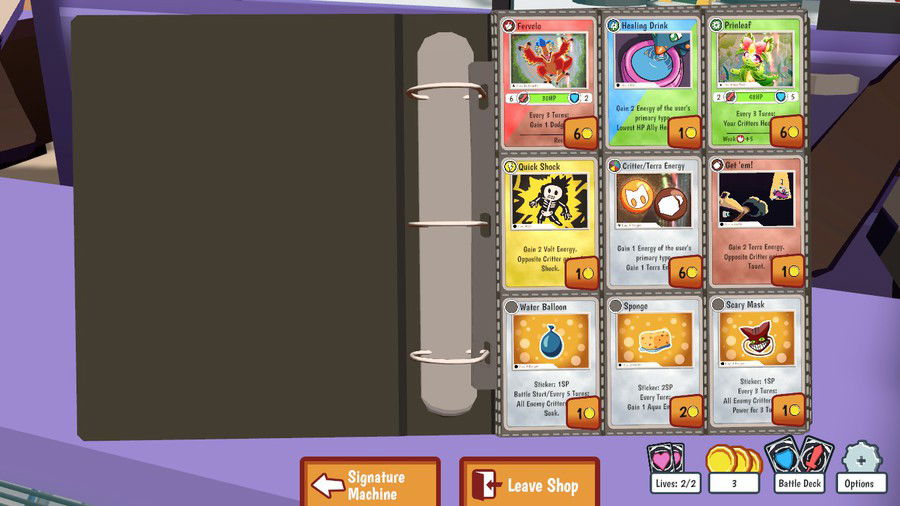
History
The game does not have a main story, but a concept: you are at your school and, when selecting your character, you will start a series of battles against your classmates - one of them being your main rival.
With several references to the TCG world and elements related to the Pokémon universe, the game maintains a colorful and extremely pleasant appearance for both young and older audiences.
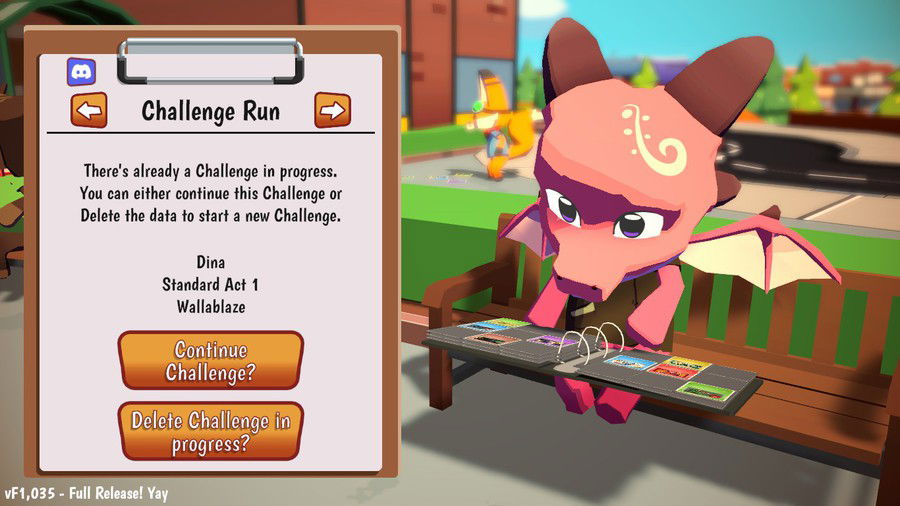
Gameplay
The game is divided into different game modes, all with the same battle mechanics. You select a collector of Critters cards (this is the name given to the little creatures on the cards), and as a player you must challenge several other collectors. When you defeat them, you can “capture” your opponent's cards or just trade cards with them.
Each collector will have 3 different starters and a unique passive ability to help you put together a strategy and progress in your adventure.
Additionally, there are events that can happen during matches, such as access to a booster machine, where you can buy cards directly from a store salesperson or be challenged out of nowhere by the Rockoon team!
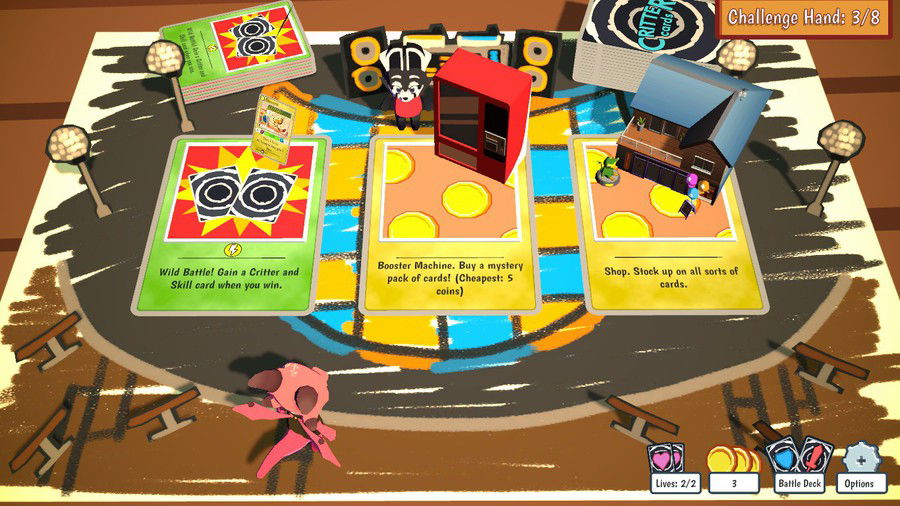
How does the game work?
Before starting any campaign, you need to choose your starter based on the selected character. As a reference, here we will use the character Dina as our initial.
Dina's passive ability is that her cards, when traded, have 1 value above normal, which helps her to obtain more valuable cards quickly, or get good value even when you trade her rarer cards. Excellent at the beginning of the game, which shows how the developer was concerned with maintaining a balanced game without taking away the challenge.
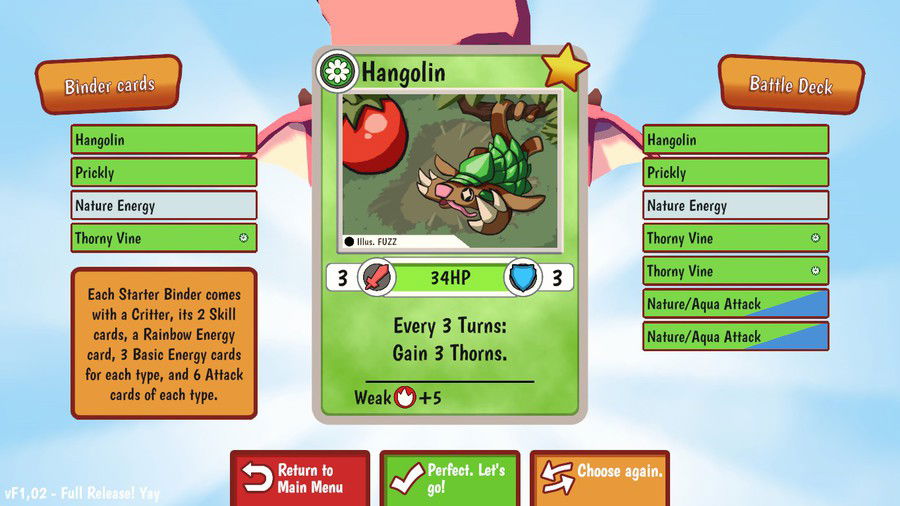
Dina’s 3 selectable starters are:
The types of cards:
The cards are divided by Creatures, Abilities and Energy.
Each one can have one or even 2 of the 6 elements present in the game:
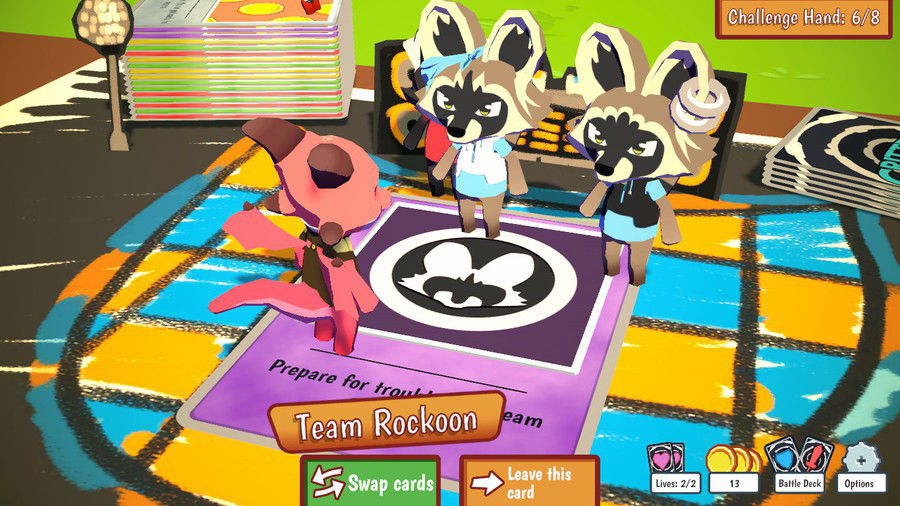
Similar to the Pokémon games, elements have weaknesses and advantages over others, but these elemental advantages vary depending on the Critters. An Electric Critter may be weak to Earth and resistant to Grass while another, of the same element, may only be weak to Water.
Critter Cards
Card types are visually represented at the top left of each card by a symbol of its element. The rainbow symbol represents a card that can be used in any deck.
Below the creature's image it is possible to see its attack, life and resistance in this order. In the card's text box, we can find out what its ability is, and below we have weaknesses and resistances.
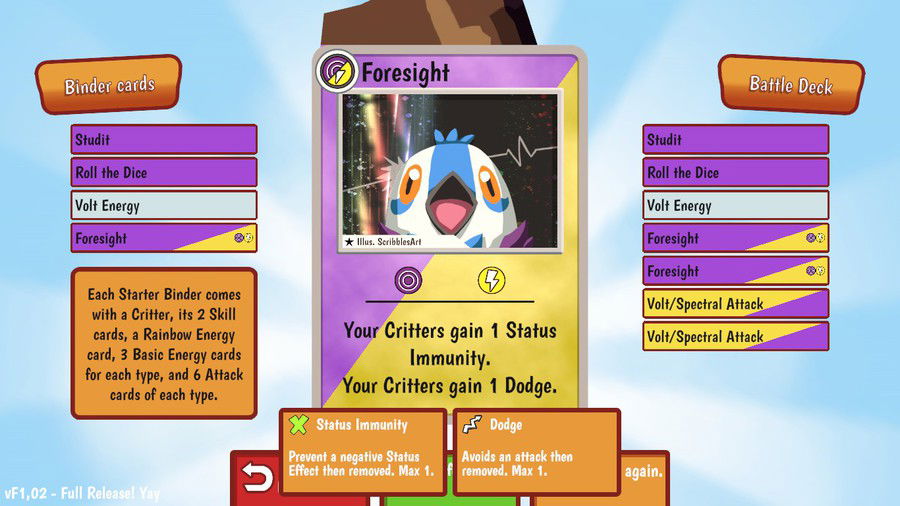
Skill Cards
Skill cards are straightforward, when used they activate a one-shot effect or a lasting effect (until it is canceled by another card), or even intensify an effect from another card.
Just like Critter cards, they have an icon at the top left indicating which element they belong to. Unlike Critters, they do not have attack, resistance or life, but rather their cost just below the image. After that, we have the text explaining the ability.

Energy Cards
Energy cards, similar to other TCGs, serve as a resource in order to use ability cards. Critters do not require Energy to be played.
There are energy cards with a gray background and others with the same color as their element. Those with a gray background generally do not consume 1 card from your turn (we’ll explain this later), which helps generate extra energy during your turn. Cards with a background of the same color as the element, normally gain you 2 energy of their color, but at the cost of 1 card from your turn.
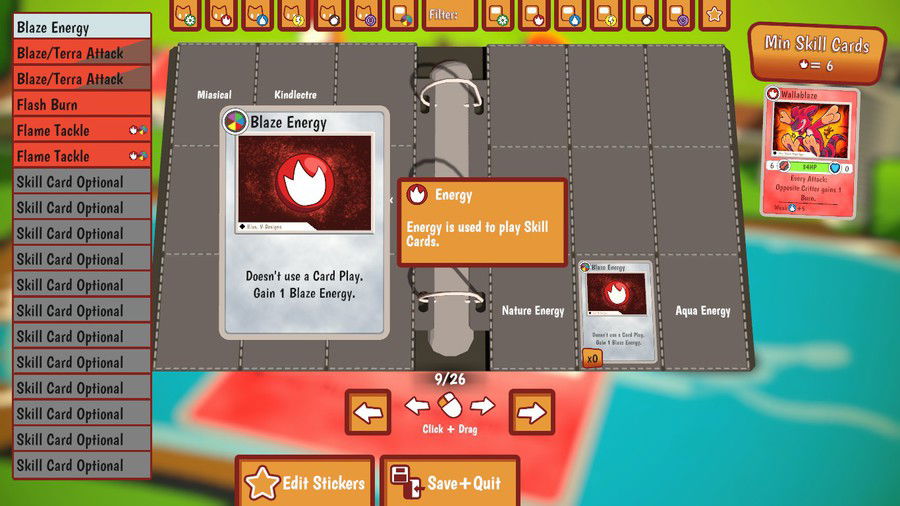
The Field and Turns
This is a turn-based game, and the position of your cards on the field also matters. In total, each player can have up to 3 critters on the field, one in the center, another in the upper back and one in the lower back.
It’s possible to play up to 3 cards per turn (some special cards, especially those that generate 1 energy, can be played at no cost), and, also, to exchange position of 2 Critters on the field.
Before you make your first play, your opponent’s plays will be shown, which makes it possible to make your own plays with full strategic information.
After finishing the turn, all moves will be executed, starting with your moves and finally those of your opponent. The game ends when there are no more Critters left in one of the players' field.
Your deck has few cards, and is always based on the number of Critters in it. For each Critter, it is mandatory to have 6 cards in your deck, with a maximum of 18 cards with 3 Critters.
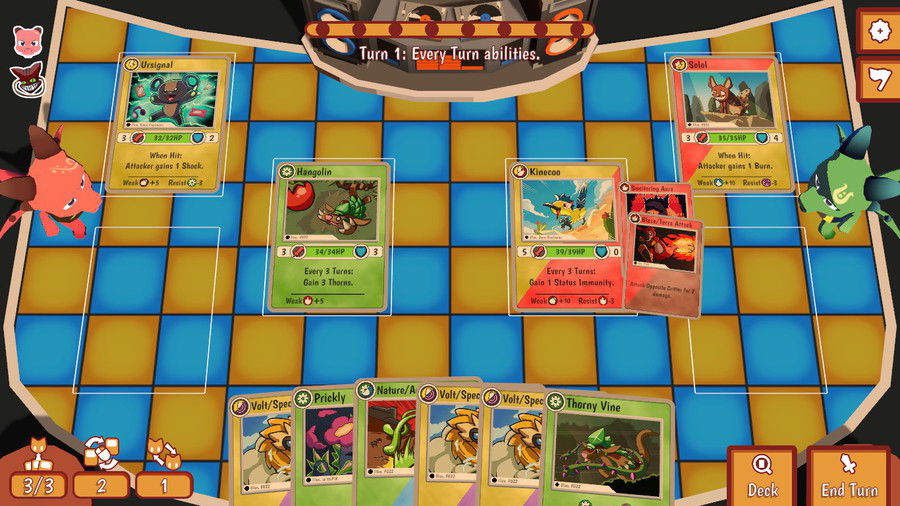
Challenge Run
In this Mode, we select our character and after selecting our initial Critter, we must defeat our opponents 1 by 1 until we reach our rival.
Along the way, before each battle, we can select one of the options presented per phase, which can be a Battle to gain a new Critter (sometimes even with a skill card attached), access to the store, access to a booster machine or a Battle against another collector to make trades. In the latter case, after defeating the opponent, we can trade with them cards of the same value or several cards from our collection that match the value of the cards we want to acquire.
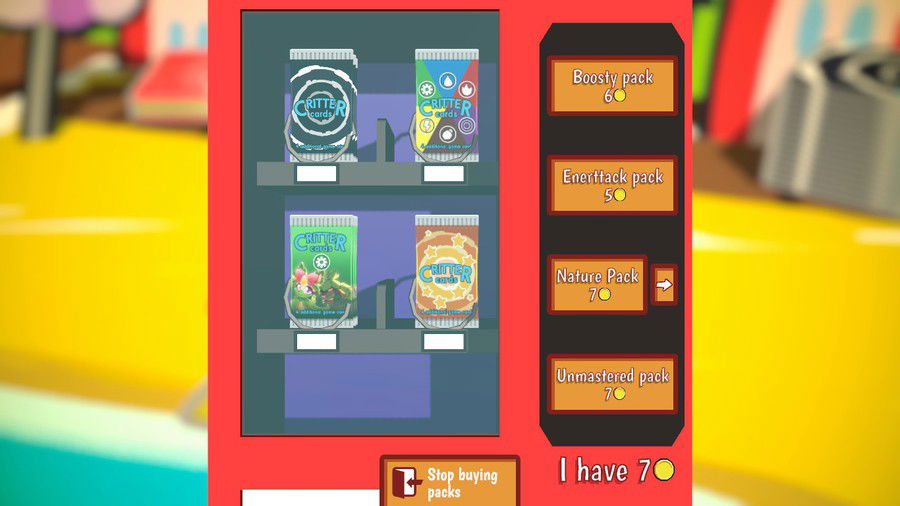
Chevos's 'Chievements
Achievements generally attract players who seek to do everything available in their games. However, here, in addition to extending the gamepan, you are rewarded for obtaining certain achievements. In this menu you can view which achievements must be completed during your game and, in return, a card will be granted that will eventually appear during the game!
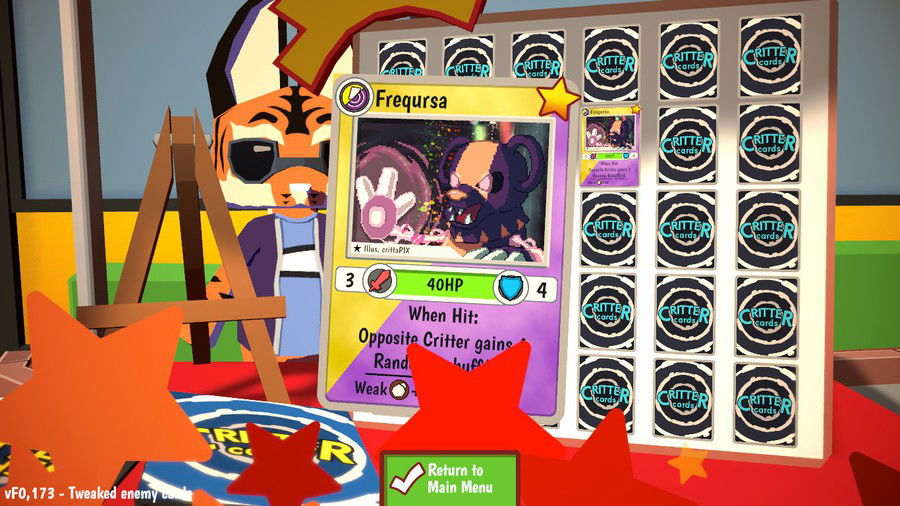
Pros and Cons
The game is a lot of fun and will please some players while alienating others, so we’ll talk about some positive and negative points in regards to the game.
Pros:
Cons:
Final verdict and conclusion
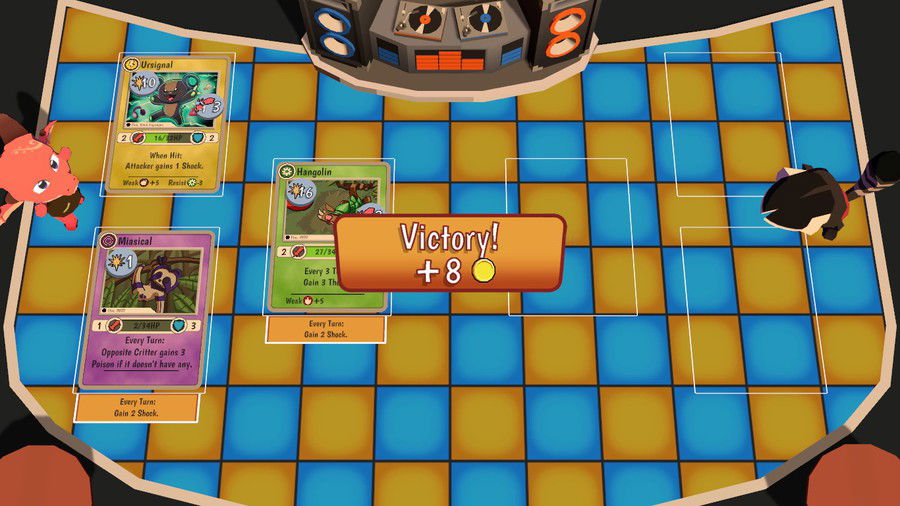
Isle of Swap proved to be an extremely pleasant surprise, being a challenging roguelike and, at the same time, bringing different emotions that card game lovers have, such as the excitement of opening a new booster pack, the pride of seeing your card binder becoming complete and bigger, being able to obtain that rare card for an excellent price from a local seller - all these small details, the developer managed to put them into the game in a simple and very effective way.
The difficulty may be something that makes some players put the game aside for a while to try later, however, the feeling of satisfaction when achieving victories over strong opponents is immeasurable.
If you enjoy games like Inscryption, Slay the Spire, Ruff Ghanor or even other games from the same developer (Fuzz Force), Isle of Swap is a great game!








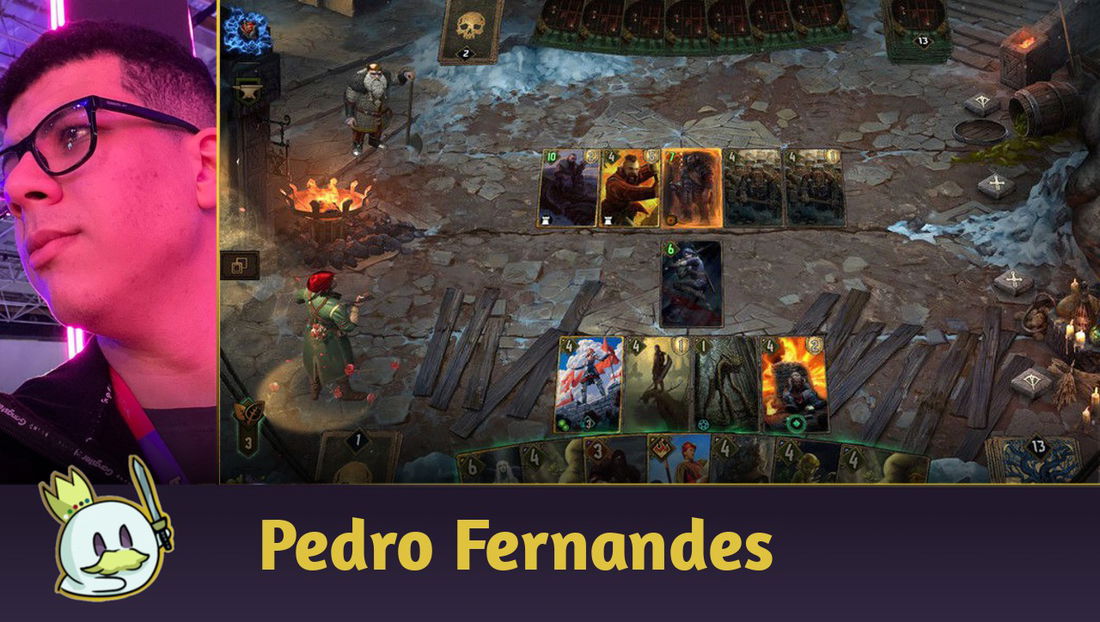
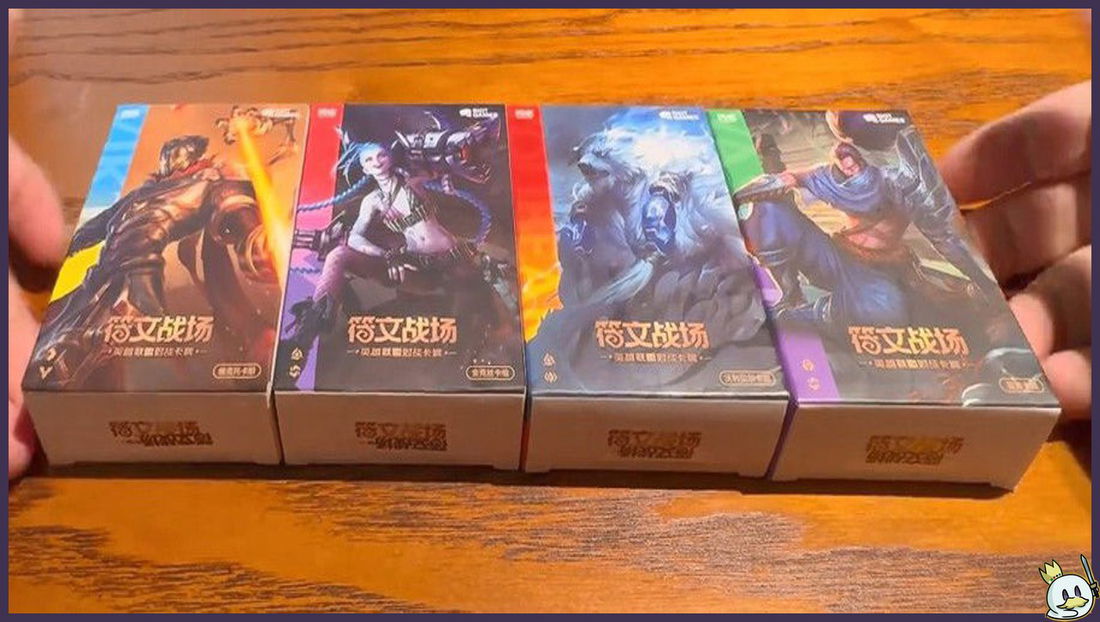

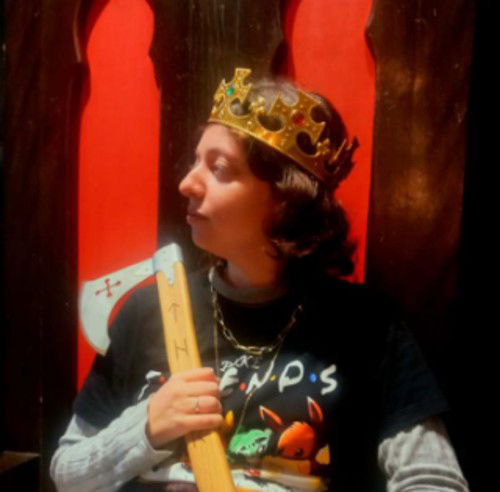

— commentaires 0
, Réactions 1
Soyez le premier à commenter